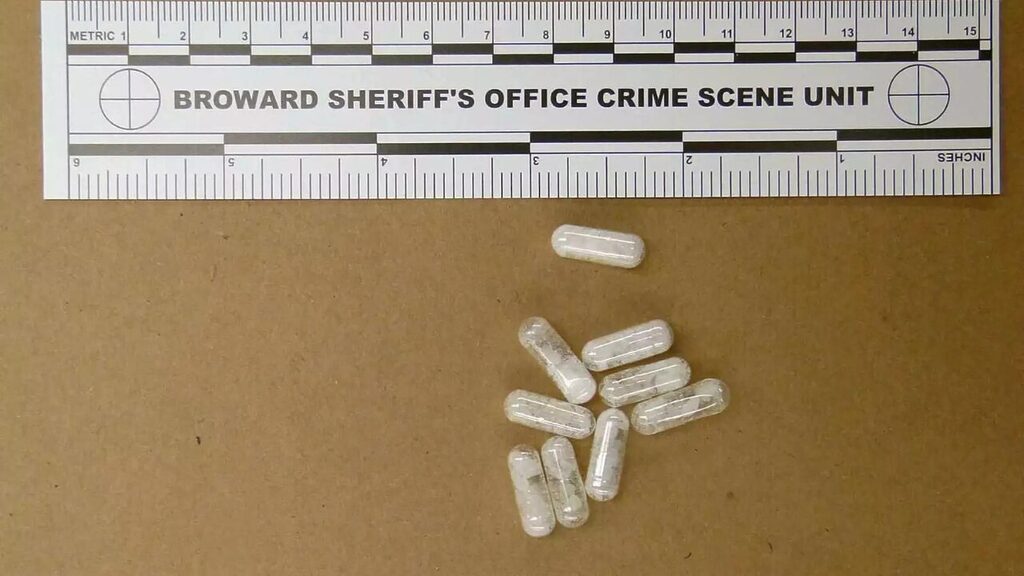A Dangerous New Synthetic Stimulant
A dangerous new synthetic drug called Flakka is flooding the streets and delivering a cheap, powerful high that can last for days but often causes erratic behavior, paranoid delusions and even death. Flakka, also known by its chemical name α-PVP, belongs to a class of illegal drugs called synthetic cathinones which mimic the effects of other stimulants like cocaine and methamphetamine. Dealers typically sell it as white or pink crystals that users can snort, swallow, smoke, inject or vaporize in e-cigarettes. Users feel the effects within minutes and they can last for 3-4 hours, although residual psychotic symptoms may persist for several days after use.
History and Prevalence
Synthetic cathinones first emerged on the recreational drug scene in the mid-2000s, starting with mephedrone and methylone. Since then, dozens of new variations have been developed, including MDPV, commonly called “bath salts.” Flakka appeared more recently, gaining popularity in 2014. It has been a particular problem in Florida, Texas and Ohio. In 2015, Broward County, Florida reported over 60 deaths related to Flakka, while state poison control centers logged more than 700 incidents involving the drug that year.
How Flakka Works in the Brain
Similar to other stimulant drugs, Flakka increases levels of dopamine and norepinephrine in the brain while inhibiting the reuptake of these neurotransmitters. Dopamine is part of the brain’s reward system, so the surge produces euphoria and increased energy. Norepinephrine raises heart rate and blood pressure and triggers the fight-or-flight response.
However, Flakka is more potent than many other stimulants, so it rapidly floods the brain, overloading the nervous system. In high doses, it can cause excited delirium, a syndrome that may include:
- Extreme agitation and violent behavior
- Paranoia and hallucinations
- Hyperthermia (body temperature up to 105°F)
- Superhuman strength
- Self-injury and suicide attempts
- Kidney damage and failure
- Breakdown of muscle tissue
- Cardiac arrest and death
Signs and Symptoms of Flakka Abuse
If you suspect a loved one may be using Flakka, here are some warning signs to watch for:
- Increased energy and restlessness
- Irritability and aggression
- Lack of appetite and weight loss
- Insomnia
- Twitching, tremors and muscle spasms
- Paranoia and delusions
- Rapid speech and illogical thoughts
- Sweating and elevated body temperature
- Dilated pupils
- Erratic, bizarre behavior
- Psychosis
Flakka is highly addictive, and regular use can quickly progress to compulsive binging. Users may disappear for several days on a binge, then crash and experience withdrawal symptoms like depression, anxiety, fatigue and strong cravings.
Treatment for Flakka Addiction
Professional addiction treatment is critical for overcoming Flakka abuse and avoiding potentially fatal consequences. Because of the high risk of psychosis and excited delirium, a medically-supervised detox is recommended to ensure the individual’s safety. Anti-psychotic medications may be needed to manage symptoms.
After detox, behavioral therapies like cognitive-behavioral therapy and motivational incentives have been shown effective for treating stimulant addictions. Individual and group counseling help individuals address the root causes of their substance use, build coping skills and create a relapse prevention plan. Ongoing participation in support groups provides a network focused on maintaining sobriety.
Get Help Now
If you or a loved one is battling Flakka addiction, Texas Recovery Center is here to help. Our addiction specialists have experience guiding clients safely through detox and providing evidence-based treatment to support long-term recovery. Call 888-354-2194 today to learn more about our programs and begin your journey to freedom from Flakka.













